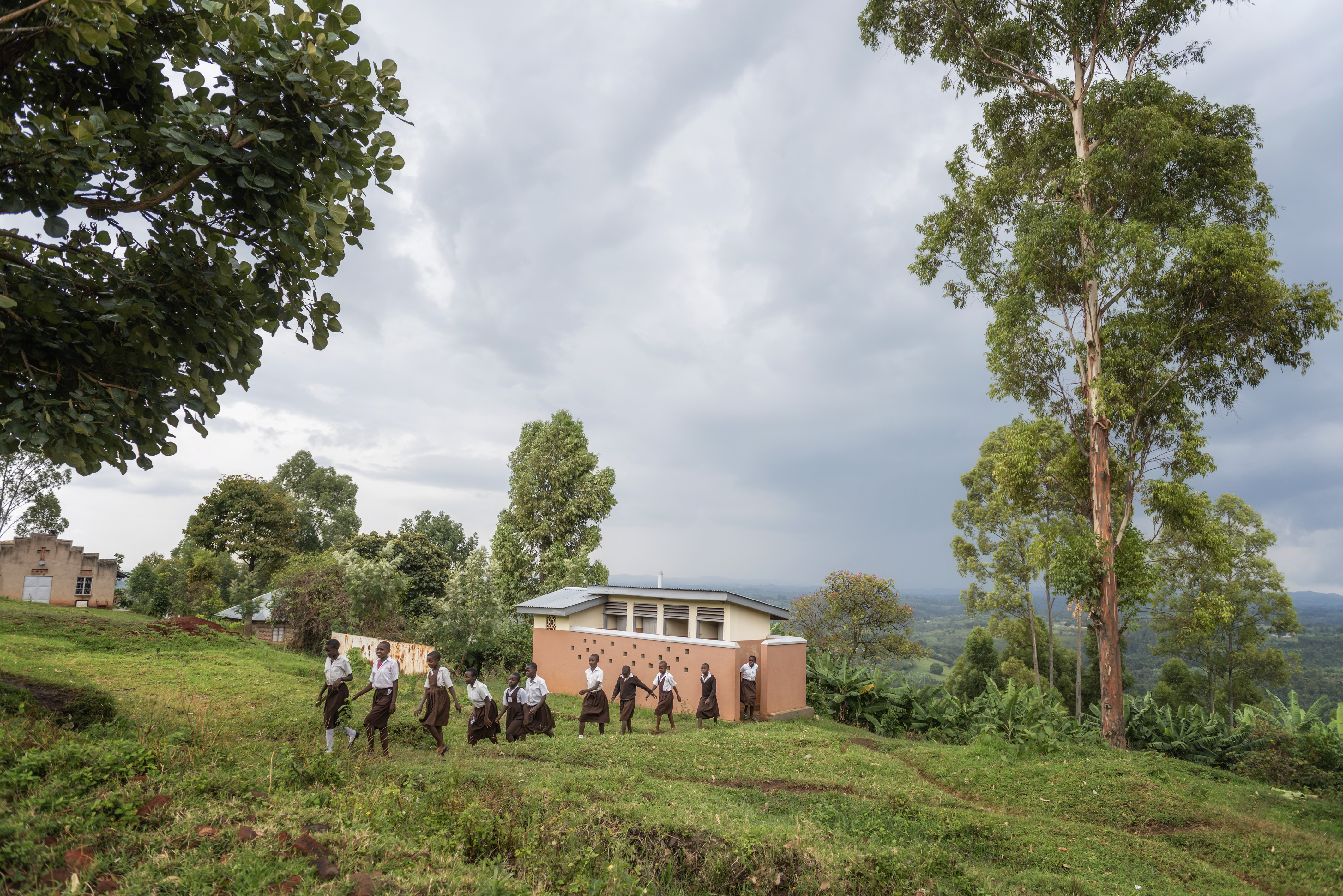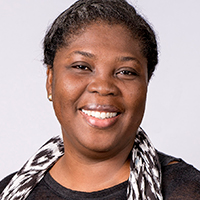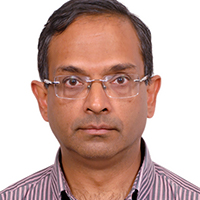We know what works
Let us apply our 50 years of experience to the WASH problems you face
Increasing impact
Developing a new theory of change for the Global Sanitation Fund
To make change happen, you need to know how. The Global Sanitation Fund now has a Theory of Change and a monitoring framework to track its impact
We were contracted by the Water Supply and Sanitation Collaborative Council (WSSCC) to help develop the Global Sanitation Fund’s theory of change and conceptual framework, as well as its new results and monitoring framework.
The Global Sanitation Fund (GSF) has been one of the key players in transforming the sanitation sector. Programmes supported by the GSF have contributed greatly to stopping open defecation. During its next phase, GSF needs to address the challenges of sustainability, scalability and equity, while at the same time strengthening its results and monitoring framework.
Several independent evaluations and studies have shown that GSF needs to strengthen its systems, procedures and approaches, and in particular to:
- revise the GSF Results Framework so that it uses adequate indicators to capture what is actually taking place as the GSF’s theory of change is put into action;
- include equality and non-discrimination, as this is a core principle of WSSCC and the GSF;
- address supply side approaches to enhance sustainability of behaviour change along with sanitation marketing.
GSF’s new theory of change and conceptual framework, and its new results and monitoring framework are due to be presented for global discussion before the end of 2017.

We were contracted by the Water Supply and Sanitation Collaborative Council (WSSCC) to help develop the Global Sanitation Fund’s theory of change and conceptual framework, as well as its new results and monitoring framework.
The Global Sanitation Fund (GSF) has been one of the key players in transforming the sanitation sector. Programmes supported by the GSF have contributed greatly to stopping open defecation. During its next phase, GSF needs to address the challenges of sustainability, scalability and equity, while at the same time strengthening its results and monitoring framework.
Several independent evaluations and studies have shown that GSF needs to strengthen its systems, procedures and approaches, and in particular to:
- revise the GSF Results Framework so that it uses adequate indicators to capture what is actually taking place as the GSF’s theory of change is put into action;
- include equality and non-discrimination, as this is a core principle of WSSCC and the GSF;
- address supply side approaches to enhance sustainability of behaviour change along with sanitation marketing.
GSF’s new theory of change and conceptual framework, and its new results and monitoring framework are due to be presented for global discussion before the end of 2017.

Veronica Ayi-Bonte

We know what works
Let us apply our 50 years of experience to the WASH problems you face
VEI
We know what works
Let us apply our 50 years of experience to the WASH problems you face
Evaluating WaterWorX
Looking into the sustainability of Water Operator Partnerships
A mid-term review of 20 Water Operators Partnerships
WaterWorX (WWX) is a programme that seeks to contribute to ensuring sustainable access to safe drinking water and sanitation to 10 million people in the period 2017-2030. WWX is funded by the Dutch Ministry of Foreign affairs (MFA) and implemented by 10 Dutch Water companies (represented by the companies VEI, PWN, World Waternet, Dunea and Oasen), in partnership with 37 selected water utilities in 17 countries in Africa, Asia and Latin America.
In April 2019, IRC was hired by VEI, on behalf of the WaterWorX consortium, to carry out a mid-term review of 20 Water Operators Partnerships (WOPs). The review took place against a framework of utility performance improvement and OECD-DAC evaluation criteria.
The evaluation team also looked into the overall WaterWorX programme management structure – including work to strengthen the enabling environment, knowledge management and project coordination, and provided recommendations.
Our services included
- Evaluation management, including:
- overall methodology development,
- guidance and supervision of country evaluators
- liaison and point of contact between client and consulting team
- overall project management,
- quality control of communication products,
- contributing to the synthesis and presenting to client,
- Carrying out the country evaluations in the mentioned countries, through document review and interviews with staff involved in the WOPs.
- Development of communication materials
Key team members were Stef Smits from IRC and Goufrane Mansour from Aguaconsult
WaterWorX (WWX) is a programme that seeks to contribute to ensuring sustainable access to safe drinking water and sanitation to 10 million people in the period 2017-2030. WWX is funded by the Dutch Ministry of Foreign affairs (MFA) and implemented by 10 Dutch Water companies (represented by the companies VEI, PWN, World Waternet, Dunea and Oasen), in partnership with 37 selected water utilities in 17 countries in Africa, Asia and Latin America.
In April 2019, IRC was hired by VEI, on behalf of the WaterWorX consortium, to carry out a mid-term review of 20 Water Operators Partnerships (WOPs). The review took place against a framework of utility performance improvement and OECD-DAC evaluation criteria.
The evaluation team also looked into the overall WaterWorX programme management structure – including work to strengthen the enabling environment, knowledge management and project coordination, and provided recommendations.
Our services included
- Evaluation management, including:
- overall methodology development,
- guidance and supervision of country evaluators
- liaison and point of contact between client and consulting team
- overall project management,
- quality control of communication products,
- contributing to the synthesis and presenting to client,
- Carrying out the country evaluations in the mentioned countries, through document review and interviews with staff involved in the WOPs.
- Development of communication materials
Key team members were Stef Smits from IRC and Goufrane Mansour from Aguaconsult
Nitya Jacob

We know what works
Let us apply our 50 years of experience to the WASH problems you face
The sanitation business
Evaluation of a social enterprise supported by Water.org
A check on capacity, finance and sales
In 2019, IRC Consult was hired by Water.org to carry out an end term evaluation of Water.org’s support to Svadha, a social business on sanitation. Water.org support has been focused on strengthening the organisation and its systems, in order to function more effectively and also to be known in the sector for its work. The evaluation included an organisational assessment looking at capacity, financial and sales data, and included a SWOT analysis.
Our services included
- Design of the research methodology
- Tools development
- Data collection
- Data analysis, and
- Reporting
In 2019, IRC Consult was hired by Water.org to carry out an end term evaluation of Water.org’s support to Svadha, a social business on sanitation. Water.org support has been focused on strengthening the organisation and its systems, in order to function more effectively and also to be known in the sector for its work. The evaluation included an organisational assessment looking at capacity, financial and sales data, and included a SWOT analysis.
Our services included
- Design of the research methodology
- Tools development
- Data collection
- Data analysis, and
- Reporting
We know what works
Let us apply our 50 years of experience to the WASH problems you face
Learning with Woord en Daad
A systems view on Woord en Daad’s Sustainable Water Program
Working towards a new multi annual strategy
In 2019, IRC Consult was selected by Woord en Daad to carry out an evaluation of its sustainable water programme. This evaluation formed part of a wider set of activities that served as input to develop a Woord en Daad’s new multi annual strategy (2021-2025).
Our services included
- The design of an evaluation and learning matrix to guide the learning process;
- Training on outcome harvesting and the facilitation of outcome harvesting exercises to generate lessons of ongoing programmes;
- A systems-based framework analysis;
- Conducting on reflection sessions
- Analysis
- Evaluation report
In 2019, IRC Consult was selected by Woord en Daad to carry out an evaluation of its sustainable water programme. This evaluation formed part of a wider set of activities that served as input to develop a Woord en Daad’s new multi annual strategy (2021-2025).
Our services included
- The design of an evaluation and learning matrix to guide the learning process;
- Training on outcome harvesting and the facilitation of outcome harvesting exercises to generate lessons of ongoing programmes;
- A systems-based framework analysis;
- Conducting on reflection sessions
- Analysis
- Evaluation report
We know what works
Let us apply our 50 years of experience to the WASH problems you face
Getting a global overview
Seeking the ideal conditions for sustainable rural water services
Global study on sustainable service delivery models for rural water in 16 countries.
In 2016-2017 IRC was subcontracted by Aguaconsult to provide technical expertise into a global study on sustainable service delivery models for rural water.
The study analysed rural water service provision in 16 countries and focused specifically on the conditions in place, current service delivery models, and the broader policy, institutional and regulatory environments.
The analytical framework employed in the study used five cross-cutting building blocks, to understand sustainable rural water services. These comprise the ideal set of functions or conditions that need to be performed or in place for the whole ecosystem to keep working. These building blocks are consolidated from the range of ten building blocks identified by the IRC led Triple-S project, as well as considering other examples, including UNICEF’s WASH Bottleneck Analysis Tool, WaterAid’s sustainability framework, USAID’s Sustainability Index Tool and the FIETS taxonomy.
Based on the findings, a briefing document was developed for each country containing key findings and recommendations, both towards main government bodies responsible for rural water supply and to the World Bank operations in respective countries. The documents identify commonalities and best practices in order to inform the future design and implementation of projects, programmes and policies with relevance for the World Bank.
Our services included
- Modification of the analytical framework
- Input into development of assessment tool
- Due diligence analysis of country reports and distillation of key lessons for global dissemination
- Production of sixteen country briefs and a synthesis global report, presenting a cross-country analysis of findings and lessons.
In 2016-2017 IRC was subcontracted by Aguaconsult to provide technical expertise into a global study on sustainable service delivery models for rural water.
The study analysed rural water service provision in 16 countries and focused specifically on the conditions in place, current service delivery models, and the broader policy, institutional and regulatory environments.
The analytical framework employed in the study used five cross-cutting building blocks, to understand sustainable rural water services. These comprise the ideal set of functions or conditions that need to be performed or in place for the whole ecosystem to keep working. These building blocks are consolidated from the range of ten building blocks identified by the IRC led Triple-S project, as well as considering other examples, including UNICEF’s WASH Bottleneck Analysis Tool, WaterAid’s sustainability framework, USAID’s Sustainability Index Tool and the FIETS taxonomy.
Based on the findings, a briefing document was developed for each country containing key findings and recommendations, both towards main government bodies responsible for rural water supply and to the World Bank operations in respective countries. The documents identify commonalities and best practices in order to inform the future design and implementation of projects, programmes and policies with relevance for the World Bank.
Our services included
- Modification of the analytical framework
- Input into development of assessment tool
- Due diligence analysis of country reports and distillation of key lessons for global dissemination
- Production of sixteen country briefs and a synthesis global report, presenting a cross-country analysis of findings and lessons.
We know what works
Let us apply our 50 years of experience to the WASH problems you face
Value for money
Assessing rural water supply investments in Tanzania
A deep dive into the challenges around the sustainability of rural water supply infrastructure
Key underlying factors for the challenges around the sustainability of rural water supply infrastructure can be found in the lack of robust data; the lack of information management systems to inform planning and budgeting; and lack of clarity around unit costs; and a lack of tools for decision makers.
In 2016, DfID Tanzania contracted IRC Consult to carry out a comprehensive value-for-money (VFM) assessment that would consider expenditure against targets, and to carry out a life-cycle-cost-assessment (LCCA) that would establish the costs associated with each stage in the delivery and operation of rural water supply.
Our services included
- The development of a checklist for the information required to conduct a value-for-money and life-cycle cost assessments, indicating data requirements;
- Conducting data collection, analysis and synthesis;
- Field visits and key stakeholder interviews at national and local government levels;
- Conducting community level surveys;
- Development of value-for-money case studies;
- Project management, financial control and supervision, administration, and report writing.
Key underlying factors for the challenges around the sustainability of rural water supply infrastructure can be found in the lack of robust data; the lack of information management systems to inform planning and budgeting; and lack of clarity around unit costs; and a lack of tools for decision makers.
In 2016, DfID Tanzania contracted IRC Consult to carry out a comprehensive value-for-money (VFM) assessment that would consider expenditure against targets, and to carry out a life-cycle-cost-assessment (LCCA) that would establish the costs associated with each stage in the delivery and operation of rural water supply.
Our services included
- The development of a checklist for the information required to conduct a value-for-money and life-cycle cost assessments, indicating data requirements;
- Conducting data collection, analysis and synthesis;
- Field visits and key stakeholder interviews at national and local government levels;
- Conducting community level surveys;
- Development of value-for-money case studies;
- Project management, financial control and supervision, administration, and report writing.
We know what works
Let us apply our 50 years of experience to the WASH problems you face